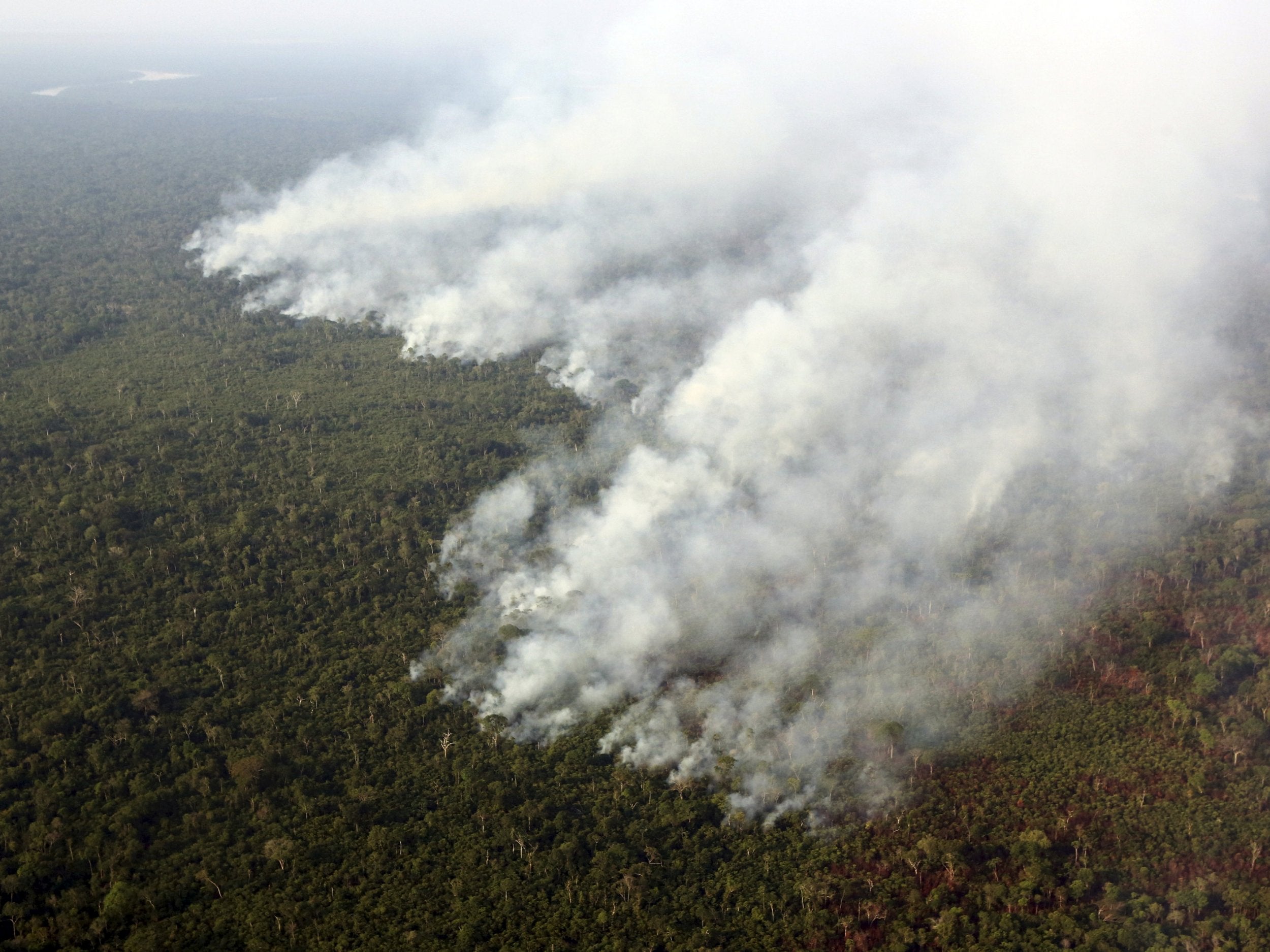Forest area the size of Italy destroyed last year as trees burned to make way for farms
'We are trying to put out a house fire with a teaspoon'

Slash and burn deforestation to make way for farms was largely responsible for the destruction of an area the size of Italy in 2017, making it the second worst year for tree loss since records began in 2001.
A total of 113,000 square miles was cleared, mostly from the Amazon and the Congo basin, as well as across Indonesia and Malaysia.
The shocking level of destruction immediately follows the worst year on record: during 2016, 185,000 square miles of forest were razed. Overall, global losses of tree cover have doubled since 2003, while deforestation of tropical rainforests has doubled since 2008.
The figures, from Global Forest Watch, run by the US-based World Resources Institute (WRI), show that Brazil alone lost 17,000 square miles of tree cover.
“Tropical forests were lost at a rate equivalent to 40 football fields per minute,” over 2017, Frances Seymour of the WRI, said in Oslo ahead of a global summit on slowing deforestation.
“Vast areas continue to be cleared for soy, beef, palm oil and other globally traded commodities. Much of this clearing is illegal,” Ms Seymour said. “We are trying to put out a house fire with a teaspoon.”
Though accounting for a small overall percentage of tropical rainforest loss, Colombia has seen an alarming rise in deforestation, which jumped by 46 per cent in 2017. The country lost a total of 1,640 square miles of forest – more than double the country’s average losses between 2001 and 2015.
The WRI linked the increase to the Colombian government’s peace deal with Farc rebels. In recent decades the rebels had severely limited commercial use of large forested areas they controlled. With the rebels no longer in control, land speculators and people who are clearing land for farming, mining and logging have rushed in.
In Brazil, where a total of 30 per cent of all tropical rainforest losses were recorded, fires set by people clearing space for other uses are thought to have also been exacerbated by climate change.
According to experts from the WRI, Brazil has recently seen a lack of enforcement of bans on setting fires and other forest destruction, which coupled with a rollback on environmental protections by the Brazilian president Michel Temer’s government, is thought to have seen an increase in human-set fires.
Brazil’s environment ministry said it could not immediately comment because it had not reviewed the data.
In Indonesia and Malaysia, deforestation has largely been due to huge global demand for palm oil.
The countries have both seen intense deforestation, however in Indonesia, levels fell sharply over 2017, dropping by 60 per cent, with experts attributing the fall to increased protection of peat areas, as well as experiencing a particularly wet year, which extinguished many fires.
The figures come as an influential report said replacing palm oil plantations with other vegetable oils would only serve to displace environmental destruction to other areas, rather than prevent it.
Join our commenting forum
Join thought-provoking conversations, follow other Independent readers and see their replies
Comments
Bookmark popover
Removed from bookmarks